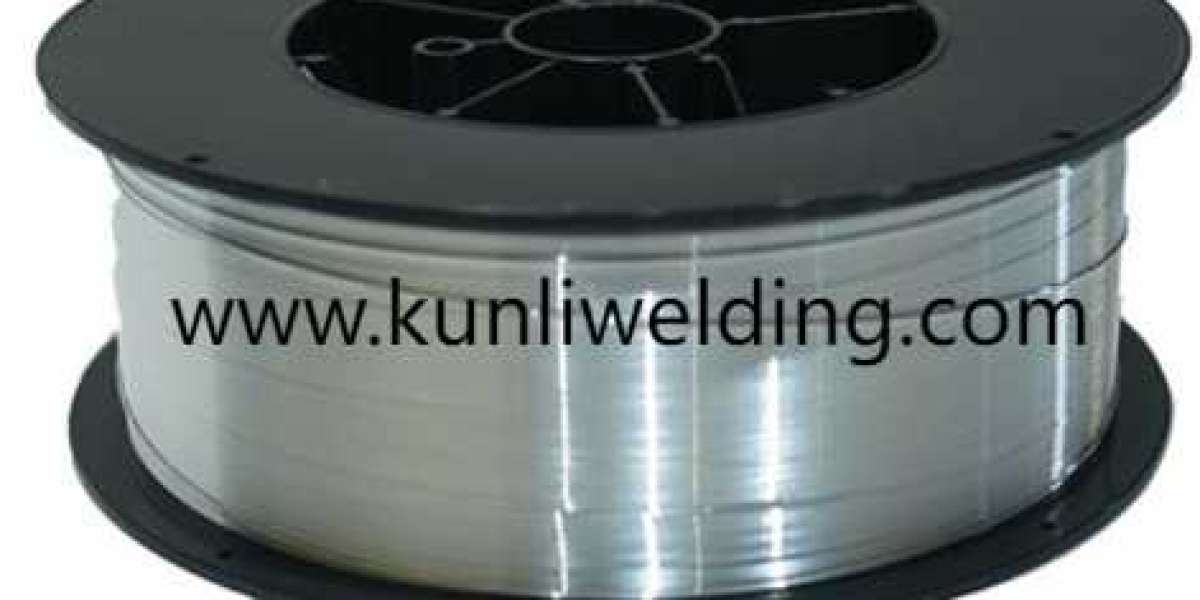The relentless drive for greater efficiency, consistency, and quality is transforming manufacturing floors globally. In demanding sectors like shipbuilding, automotive, and aerospace, the margin for error shrinks while performance demands soar. Aluminum MIG wire, vital for joining critical components, sits at the intersection of material science and advanced fabrication. Rising to meet these challenges, innovative Aluminum Mig Wire Manufacturers in China are harnessing the power of smart manufacturing to redefine production standards and deliver wire that meets the stringent needs of modern welding. This embrace of automation signifies a significant evolution in capability and reliability.
Traditional welding wire production, particularly for sensitive aluminum alloys like ER5183 and 5154, demanded meticulous manual oversight. Susceptibility to oxidation, strict requirements for surface cleanliness, and the need for consistent chemical composition presented significant hurdles. Variations in wire feedability, diameter consistency, or surface condition could lead directly to weld defects – porosity, lack of fusion, or inconsistent bead appearance – compromising joint integrity and demanding costly rework. The pressure for higher throughput without sacrificing quality further strained conventional methods.
Smart manufacturing offers potent solutions to these persistent challenges. At its core, it involves the integration of sophisticated automation, data analytics, and interconnected systems throughout the production chain. For Aluminum Mig Wire Manufacturers, this translates into transformative capabilities. Automated casting and alloying systems ensure precise chemical composition batch after batch, critical for achieving the desired mechanical properties and corrosion resistance in wires like ER5183. Robotic handling and advanced drawing technologies minimize human contact, drastically reducing the risk of surface contamination that can lead to weld porosity. Vision systems and laser micrometers continuously monitor wire diameter and surface finish in real-time, allowing for instantaneous adjustments far exceeding human reaction speeds. This constant digital vigilance virtually eliminates dimensional inconsistencies.
Beyond physical production, the intelligence extends to environmental control and process optimization. Automated storage systems maintain welding wire in tightly controlled humidity and temperature conditions, preventing moisture absorption that causes hydrogen-induced porosity during welding. Production data is continuously collected and analyzed, identifying subtle correlations between process parameters and final wire quality. This allows for predictive maintenance, minimizing unplanned downtime, and enables ongoing refinement of production parameters for even greater consistency. The traceability embedded within smart systems provides a complete digital history for each batch, offering invaluable assurance to customers requiring stringent quality documentation.
The impact on the final product – the aluminum MIG wire spool delivered to the welder – is tangible. Smart factories produce wire characterized by unprecedented consistency. Diameter tolerances are held tighter, surface smoothness is enhanced, and chemical homogeneity is assured. This translates directly to superior welding performance for the end-user. Welders experience significantly improved wire feedability, reduced spatter, and enhanced arc stability. The resultant welds exhibit fewer defects, improved appearance, and, crucially, more predictable and reliable mechanical properties – higher strength, better ductility, and consistent corrosion resistance. This reliability is paramount for critical applications where weld integrity cannot be compromised.
The global push towards sustainable and efficient manufacturing further underscores the value of this approach. Reducing material waste through precise process control, minimizing energy consumption via optimized operations, and eliminating defects that lead to scrap and rework all contribute to a greener footprint. For industries like electric vehicle manufacturing, where lightweight aluminum structures are essential for range and efficiency, the consistent quality of smart-manufactured aluminum MIG wire supports faster, more reliable production lines. It enables manufacturers to meet ambitious targets while upholding safety and performance standards.
Choosing a supplier in this evolving landscape means looking for evidence of this technological commitment. Forward-thinking Aluminum Mig Wire Manufacturers distinguish themselves through significant investment in automated lines, rigorous data-driven quality systems, and a demonstrable focus on continuous improvement driven by process analytics. This capability ensures they can consistently meet the exacting specifications required by international standards and demanding end-use sectors.
Companies like Kunli Welding embody this progression within the sector. Located in Hangzhou, they integrate advanced manufacturing technologies into their production of specialized aluminum welding wires, including ER5183 and 5154 alloys. Their approach emphasizes leveraging automation to achieve high levels of consistency and reliability in their MIG wire offerings. By focusing on refined parameters and stringent quality control throughout the smart production process, Kunli Welding aims to deliver wire that welders can depend on for critical joins in challenging environments. Discover more about their commitment to technologically advanced manufacturing at www.kunliwelding.com, where innovation meets the demands of modern fabrication. The integration of smart technologies is setting a new benchmark, ensuring aluminum MIG wire is a precise and reliable partner in building the world'sessential structures and vehicles.








